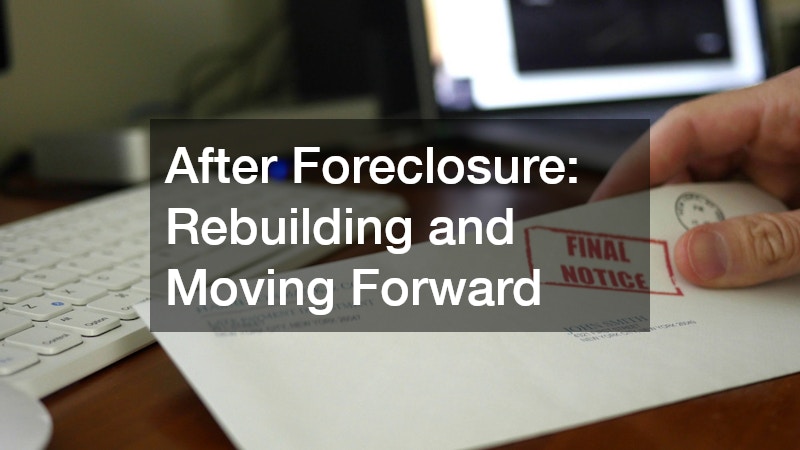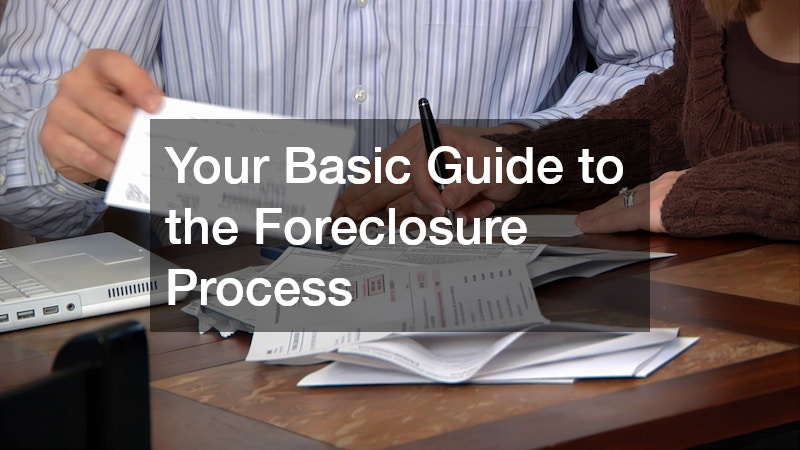Foreclosure is a legal process by which a lender takes possession of a property after the borrower fails to meet the agreed-upon loan obligations. This usually occurs when a homeowner cannot make mortgage payments, leading the lender to initiate proceedings to recover the outstanding debt. While foreclosure can be a stressful ordeal, understanding the process can help homeowners better navigate this challenging situation.
The process begins when the borrower defaults, typically after missing multiple payments, leading the lender to issue a notice of default.
At this stage, homeowners should immediately contact their lender to explore possible alternatives to foreclosure. Options might include loan modification, refinancing, or short sales, all of which can help prevent the loss of the home. It’s crucial for homeowners to understand their legal rights and obligations during this period to avoid being taken by surprise by any aspect of the foreclosure process. Counseling services and legal aid programs may be available to assist homeowners in distress. Engaging with these resources promptly can often prevent the foreclosure from proceeding.
It’s also wise for homeowners to keep detailed records of all communication with their lender, including emails, letters, and phone calls. Documentation can become critical if there is a dispute over whether the lender followed proper procedures or offered adequate alternatives. In some cases, administrative errors or violations of lending laws may provide grounds to contest the foreclosure or delay proceedings. Maintaining an organized file with all loan documents, payment history, and correspondence can help homeowners protect their rights and improve their chances of reaching a workable resolution.
Moreover, foreclosure laws and processes can vary significantly depending on the state or locality. For instance, in states like Florida, where foreclosure in West Palm Beach, FL, and nearby areas is a common concern, the process is judicial, meaning the lender must file a lawsuit in state court. Homeowners in such jurisdictions need to be particularly diligent in responding to legal notices and seeking legal representation if necessary. Acting swiftly and informedly can sometimes lead to favorable outcomes or give homeowners more control over the process.
The Foreclosure Process
The foreclosure process typically begins with a notice of default after the borrower has missed payments. Once the notice is issued, the borrower should receive formal notification detailing the amount owed and the deadline for settling the debt to halt foreclosure proceedings. If the borrower fails to address the default, the lender will advance the process by scheduling a foreclosure sale. Initially, this can feel overwhelming, but understanding each step can empower homeowners to make informed decisions.
The period between the notice of default and the foreclosure sale is critical. During this time, homeowners could engage in negotiations with their lender to find possible solutions such as restructuring their loan or engaging in a short sale. In such scenarios, professional advice from financial advisors or real estate experts can offer invaluable guidance. This stage of the process is often laden with opportunities, albeit urgent ones, to resolve the default situation. Foreclosure mediation is another potential avenue, providing a platform for homeowners and lenders to explore alternatives.
If all else fails, the property will be advertised for a public auction, where it may be sold to the highest bidder. Auctions after foreclosures in West Palm Beach, FL, and similar regions are usually held at the county courthouse, offering another layer of public transparency. At the completed sale, ownership of the property is transferred to the lender or third-party purchaser, finalizing the foreclosure process. However, even after the sale is concluded, some states offer a redemption period where previous owners have a final opportunity to reclaim their property. Specialized legal advice can illuminate options still available after foreclosure concludes.
After Foreclosure: Rebuilding and Moving Forward

Once the foreclosure process concludes, homeowners often face the challenges of relocating and rebuilding their financial stability. Transitioning to renting can be an effective way to ensure housing while working on improving credit scores. While foreclosure remains on a credit report for several years, proactive measures like timely bill payments and reducing debt can aid significantly in credit recovery. Developing a realistic budget and adhering to it is crucial during this period. Financial counseling programs can also provide support and resources tailored to individual circumstances.
For those wishing to repurchase a home post-foreclosure, understanding the “waiting period” is essential. Typically, government-backed loans like FHA and VA have specific wait times before you can qualify again for a mortgage after foreclosure. In contrast, private lenders may offer more flexibility, particularly for borrowers who demonstrate financial stability. Educating oneself on available loan programs and financial best practices is an important step in reentering the housing market. Building relationships with mortgage brokers and real estate professionals can also prove advantageous.
Furthermore, support networks consisting of friends, family, and community resources play a vital role in emotional recovery post-foreclosure. Joining support groups or engaging in community activities can provide a sense of stability and belonging. Foreclosure, while distressing, can also serve as a learning experience and lead to long-term financial prudence. When it comes to foreclosure in West Palm Beach, FL, and similar areas, community workshops often provide education and aid to those in recovery. By leveraging these resources and maintaining a positive outlook, individuals can steadily rebuild.

